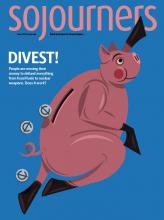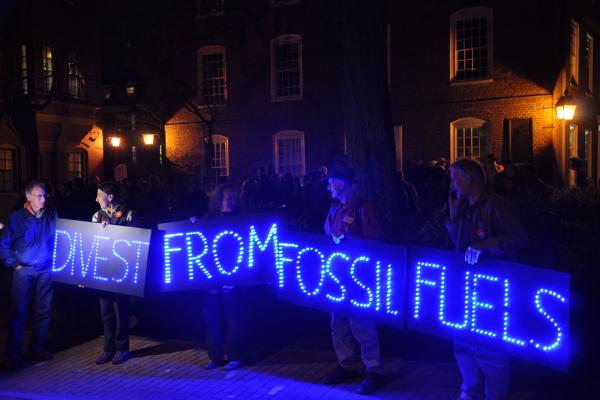LAST SPRING, Archbishop Desmond Tutu, an architect of the South African freedom movement, called for “an apartheid-style boycott to save the planet.” Tutu—along with millions of people of faith and conscience—understands not only that it is morally right to address climate change, but that money talks. “People of conscience need to break their ties with corporations financing the injustice of climate change,” said Tutu.
The fossil-fuel divestment movement has its roots in grassroots mobilizing, churches, local governments, and student campaigns. The movement has grown exponentially in the U.S. since Maine’s Unity College became the first campus to divest (in 2012) and the United Church of Christ became the first denomination to formally divest (in 2013). Today, divestment from fossil fuels is gaining momentum, with increasing numbers of asset owners committing to moving their money.
In fact, this campaign has grown faster than any other previous divestment movements, including those against apartheid in South Africa and tobacco. A number of factors indicate that we are at a tipping point. Here are four: 1) last year was the hottest year on record, 2) expenses related to climate change are skyrocketing, 3) significant financial risks are now associated with fossil-fuel investments and the divestment movement is growing, 4) and the economics of renewable energy products is improving, so investments in these products is growing.
Read the Full Article

